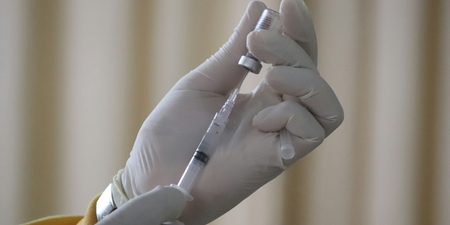Brought to you by Pieta
“When you’re struggling, it’s hard to make that step and it’s hard to say that you need help.”
There’s no question about it; fitness influencer Nathalie Lennon is a busy woman.
Between radio hosting gigs and her work as a personal trainer and nutrition coach, the Carlow-based creator is booked and busy, and that’s before we mention her 60k+ Instagram following.
But Nathalie’s focus on health and well-being doesn’t stop there and it isn’t just limited to the physical. She has recently taken on a new role as a Pieta Ambassador, working towards destigmatising mental health through the charity’s SIGNS of Suicide campaign.
“There isn’t a person in Ireland who hasn’t been touched by mental illness, either directly or indirectly. For that reason, I am honoured to be taking part in the SIGNS of Suicide campaign this year, which empowers Irish people to talk about their feelings, assist loved ones in crisis and seek help themselves,” Nathalie says.
“Any of us can find ourselves in a dark place but it’s important to not let those thoughts consume us and to reach out to family and friends.”

SIGNS of Suicide highlight the warning signs that someone might be struggling and gives advice on how to approach the topic of suicide with a loved one you’re worried about.
The 5 SIGNS of Suicide include:
- Sleep disturbance
- Isolation
- Giving away possessions,
- No interest in anything
- Speaking of no future
“One thing that this campaign is really promoting is encouraging people to swap the small talk for the big talk,” Nathalie explains. “And I think that can be daunting on both ends, diving into such deep conservation, but that’s where you shouldn’t be afraid to ask when it comes to the SIGNS.”

A few years ago, during her own mental health struggles, Nathalie learned just how important a loved one’s support can be when you’re going through a low period. A viral before-and-after picture on Instagram sparked Nathalie’s social media fame but while her follower count was on the up, Nathalie felt her mood and her mental health hit a new low.
“Building a social media following based off what was a before-and-after picture that went viral kind of led to this pressure to always be positive online and always be happy online, but also a lot of pressure to look a certain way. And that, I guess, in time, took its toll on my mental health completely.
“For me, that was in the form of being kind of restrictive with food and obsessive over calories, my weight, my body fat percentage, and that just led to a few years of inner turmoil and inner demons that at the beginning, I didn’t quite understand and didn’t know how to deal with it.”
Nathalie decided to seek help, which she says was crucial in helping her develop better coping mechanisms that still help her through difficult periods today.
“After that, it brought me back to my old happy self again and it gave me the coping mechanisms that I probably need going forward if I ever feel like I’m struggling or slipping again. I know now what I can do to prevent that happening and I know I have the strength to overcome it.”

Nathalie says her friends and family were a big support to her during this time, checking in with her to see how she was feeling and going along with her to appointments when needed. When it comes to supporting a loved one who might be struggling with suicidal thoughts, Pieta has developed a framework to help with those difficult conversations.
If you notice the SIGNS of suicide in a loved one, Pieta recommends broaching the topic with the person, using the APR method – Ask, Persuade, Refer.
- Ask – Don’t be afraid to ask, “Are you thinking about suicide or wanting to kill yourself?”. This won’t put the idea in their head.
- Persuade – Calmly and gently try to persuade them to seek help or to allow you to assist them in getting help. Say “Will you go with me to get help?” or “Will you let me assist you to get help?”.
- Refer – Refer or guide the person you are concerned about to Pieta (or your doctor or local mental health service). If you can, make the call with them or travel with them to the appointment
“CPR can save a life physically and APR may save a life mentally,” Nathalie adds.
“Having someone there to help you with that referral is really important and it’s vital because it’s not a step you’d want to take when you’re the one struggling. It’s all a lot when you’re trying to deal with the issues that you have internally.”
“I guess the people around me and how they supported me, little did they realise it was actually following that APR system that Pieta would push to the fore.”
Visit pieta.ie for the full list of signs to watch and listen out for.
You can contact Pieta’s Crisis Helpline on 1800 247 247 or text HELP to 51444.
Brought to you by Pieta




















































